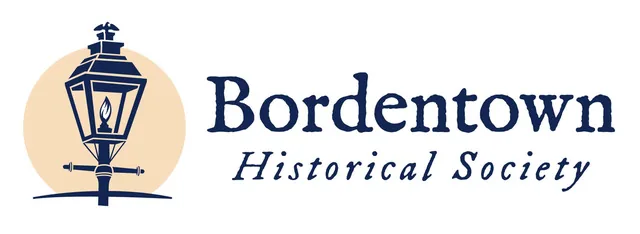

Francis Hopkinson, member of the Continental Congress and signer of the Declaration of Independence lived in this town. His beautiful home is still standing, a treasure on the National Register of Historic Places. It was used as British headquarters when the town was occupied during the Revolutionary War. Francis’ son Joseph, author of our first national anthem, Hail Columbia, resided here as well.
Born in Philadelphia, Province of Pennsylvania, British America, Hopkinson received an Artium Baccalaureus degree in 1757 from the College of Philadelphia (now the University of Pennsylvania) and an Artium Magister degree in 1760 from the same institution. He was the first native American composer of a secular song in 1759. He was Secretary of a Commission of the Provincial Council of Pennsylvania which made a treaty between the Province and certain Indian tribes in 1761. He entered private practice in Philadelphia, Province of Pennsylvania from 1761 to 1766. He was Collector of Customs in Salem, Province of New Jersey in 1763. Hopkinson spent from May 1766 to August 1767 in England in hopes of becoming Commissioner of Customs for North America. Although unsuccessful, he spent time with the future Prime Minister Lord North, Hopkinson’s cousin James Johnson and the painter Benjamin West. He was a merchant in Philadelphia, Province of Pennsylvania, who sold varieties of fabric and port wine, starting in 1768. He was Collector of Customs for New Castle, Delaware Colony from 1772 to 1773. He resumed private practice in Bordentown from 1773 to 1774. He was a member of the New Jersey Provincial Council from 1774 to 1776. He was a member of the Executive Council of New Jersey from January 13, 1775, to November 15, 1775. He was admitted to practice before the bar of the Supreme Court of New Jersey on May 8, 1775. He was elected an Associate Justice of that court in 1776, but declined the office. He was a delegate to the Second Continental Congress (Continental Congress) from June 22, 1776, to November 30, 1776. He was a signer of the United States Declaration of Independence. He was a member of the Navy Board in Philadelphia from 1776 to 1777. He was Treasurer for the Continental Loan Office in Philadelphia from 1778 to 1781. He was Judge of the Admiralty Court of Pennsylvania from 1779 to 1789. He was a member of the Pennsylvania Convention which ratified the United States Constitution.
